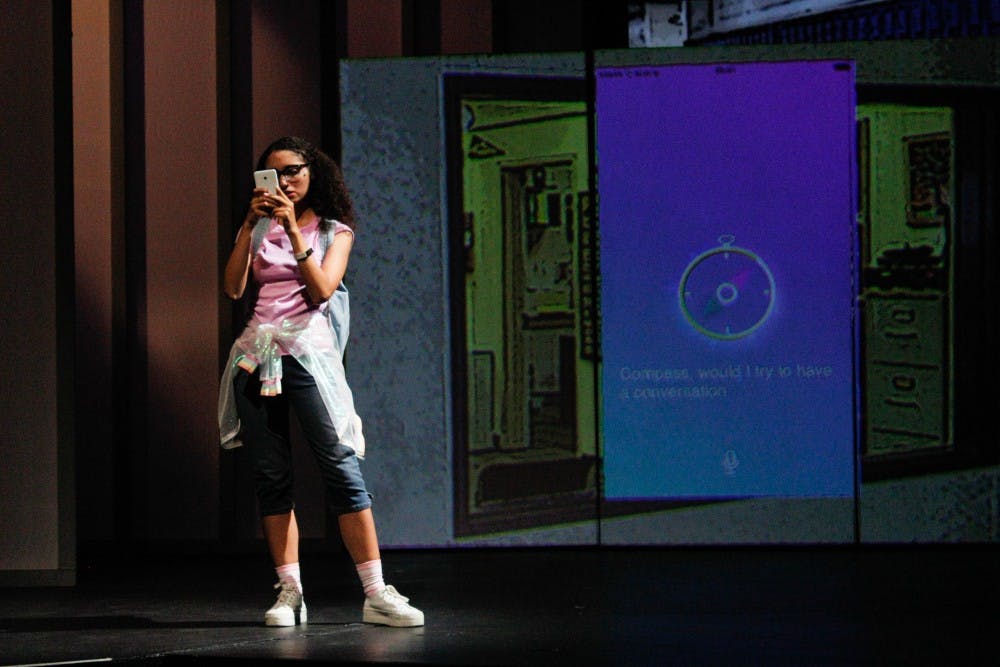"The Compass," a play showing this month at the Galvin Playhouse, is centered around a girl named Marjan, a high school student who lives in the not-so-far-off future where a new app called the Compass has become an integral part of everyone's lives.
"The Compass is essentially an app where it connects to all of your other social media, and it can tell you what you would do in an situation," said Maria Idalis Harris, a theater sophomore who plays Marjan in the show.
Marjan finds herself on trial for a decision she made after consulting the Compass app, which plays to the overarching theme of the ethics of technology. The show takes a unique approach as the audience becomes the jury and has the ultimate decision of Marjan's fate.
The play's aspect of audience inclusion is what makes it a unique experience, but Michael Rohd, a Herberger Institue professor and writer and director of "The Compass," said it's not too distracting.
"It's certainly nothing that is awkward, or like where anybody has to do anything," Rohd said. "It's conversations and opinions and some high stakes moments of 'what do you think'."
He said it took three years to create the show in Chicago, where the show premiered, and he has now brought it to ASU.
"I did research in Chicago with everyone from executives at Google and Facebook to public high school students to lawyers — it was all kinds of folks," Rohd said.
While an interactive show is a novel experience for some audience members, it is also something new for the actors, too. Harris said she had never performed in a show like this before and that each show is unique.
"Sometimes when you are backstage and you can hear what the audience is saying you're like 'Okay, now I know I need to emphasize this so I don't get acquitted," she said.
Leslie Campbell, a global health and theater junior, plays the prosecutor who tries to sway the audience into finding Marjan guilty. Campbell said that, because the story moves around, she decided to focus less on the background of her character, but rather her motivations.
"I just focused on what would drive her as a lawyer, what are her convictions, what are her underlying morals," she said. "What is driving her to want to convince this jury that this teenager is guilty?"
Through the different events surrounding the trial, "The Compass" sheds light on controversial themes such as public safety, racial profiling, and, most forcefully, dependence on technology.
"I think we're delving into a lot of very relevant topics like ... how we let technology influence us and the influence it has on other people around us," Campbell said.
The Compass is playing at the Galvin Playhouse from Nov. 16 to 18 at 7:30 p.m. and on Nov. 19 at 2:00 p.m. The play is open to the public, and it is free for Herberger students. To buy tickets, click here.
Editor's note: theater major Maria Idalis Harris previously worked for The State Press as an opinion columnist. She no longer works for the publication.
Reach the reporter at ihaugen@asu.edu and follow @haugen_dazs on Twitter.
Like The State Press on Facebook and follow @statepress on Twitter.




